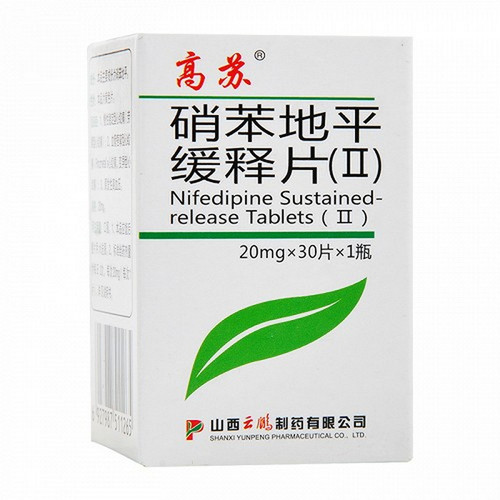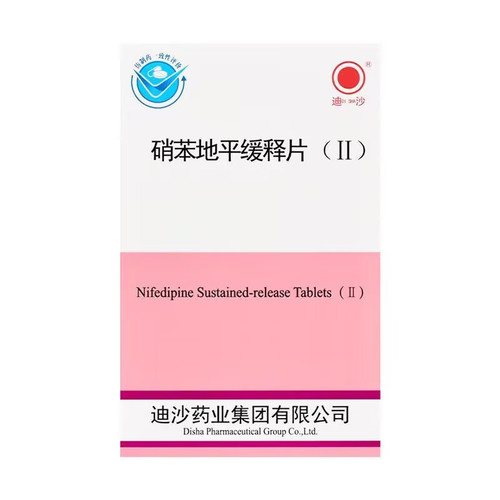Product Overview
[Drug Name]
Generic Name: Nifedipine Extended-Release Tablets (II)
Trade Name: Travolta Nifedipine Extended-Release Tablets (II) 20mg*36 Tablets
Pinyin Full Code: QuFuTa XiaoBenDiPingHuanShiPian (II) 20mg*36 Tablets
[Main Ingredient]
The main ingredient of this product is nifedipine.
[Properties]
This product is a yellow tablet.
[Indications/Main Functions]
For the treatment of hypertension and angina pectoris.
[Specifications]
20mg*36 tablets
[Dosage]
Oral. Take one tablet once or twice daily, or as directed by a physician.
[Adverse Reactions]
1. Short-lived, most common reactions include swelling of the ankles, feet, and calves, which can be relieved with diuretics. 2. Occasionally, chest pain, headache, flushing, dizziness, palpitations, and decreased blood pressure may occur. 3. Occasionally, abdominal pain, nausea, loss of appetite, and constipation may occur. 4. Gingival hypertrophy may occur.
[Contraindications]
Contraindicated in patients allergic to nifedipine.
[Drug Interactions]
1. Concomitant use with other antihypertensive drugs may cause extreme hypotension.
2. Concomitant use with beta-blockers may lead to hypotension, cardiac suppression, and an increased risk of heart failure.
3. Abrupt discontinuation of beta-blocker therapy and initiation of this drug may occasionally cause angina pectoris; the dosage of the drug should be gradually reduced.
4. Concomitant use with highly protein-bound drugs such as coumarins, digitalis glycosides, fentoin, quinidine, quinine, and warfarin often alters the free state of these drugs.
5. Concomitant use with nitrates may enhance the therapeutic effect in treating angina pectoris.
[Precautions]
1. This product is a sustained-release tablet; swallow it whole; do not chew it. To reduce the dose, split the tablet in half along the center line.
2. When discontinuing calcineurin, reduce the dose gradually. Do not discontinue the medication without a doctor's advice. 3. Use with caution in patients with hypotension. 4. Use with caution in patients with severe aortic valve stenosis, hepatic or renal insufficiency. Please read the instructions carefully and follow your doctor's instructions.
[Pediatric Use]
Contraindicated in children.
[Elderly Use]
This study has not been conducted and no reliable references are available.
[Overdose]
This study has not been conducted and no reliable references are available.
[Pharmacology and Toxicology]
Nifedipine inhibits calcium ion transport through myocardial and vascular smooth muscle membranes, inhibiting the flow of calcium ions into cells, leading to decreased myocardial contractility and vasodilation. Animal studies have shown that by reducing myocardial contractility and peripheral vascular resistance, it reduces myocardial oxygen consumption. It also increases oxygen supply to ischemic areas of the myocardium through coronary vasodilation and the development of collateral circulation. By inhibiting the consumption of high-energy phosphate compounds, it enhances resistance to hypoxia.








